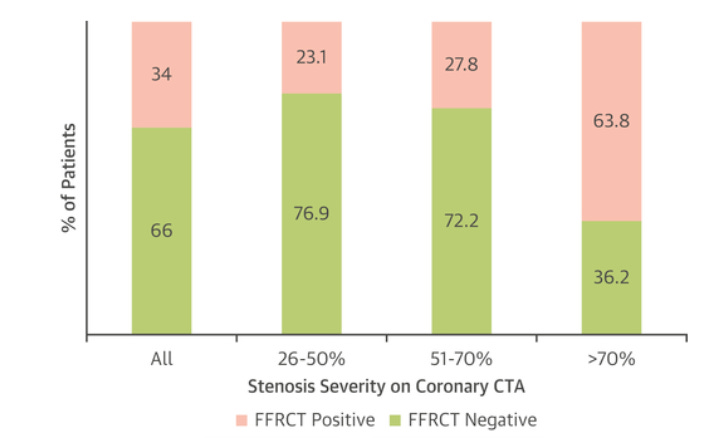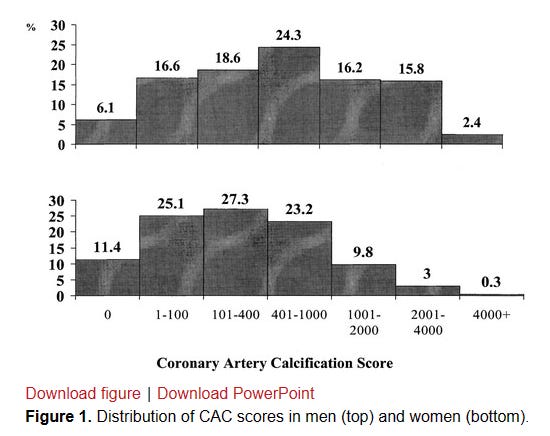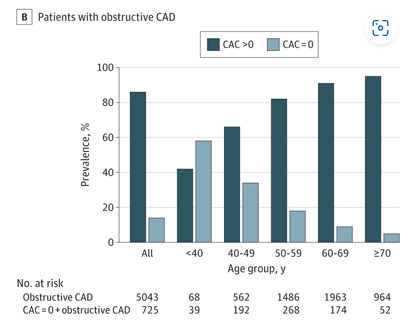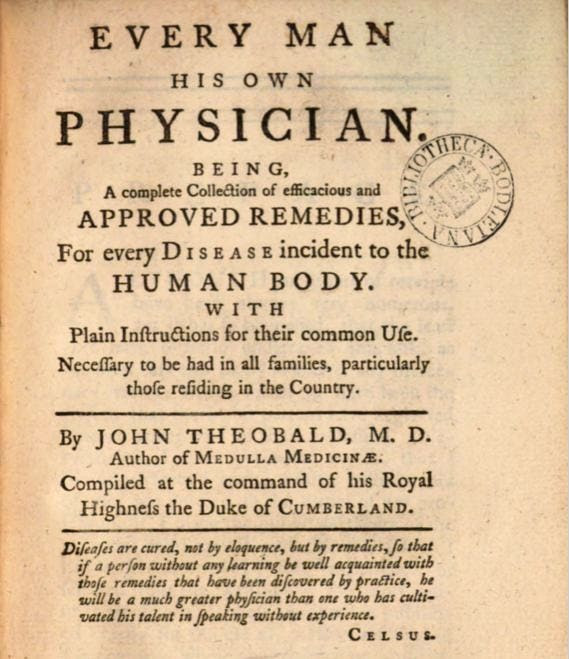anish coca
The All-in Podcast is a hugely popular show where successful Silicon Valley investors comment on anything worth commenting on, from politics to health. This group has good chemistry and interesting insights that break the mold of the usual tribal politics that control legacy media analysis of current events.
last week’s podcast I touched on a topic I spend a lot of time on, cardiology.
In fact, Brad Gerstner, the guest host of this particular episode, begins by evaluating the heart recommended by another host, Chamath Palihapitiya, referring to something called Heartflow. Brad asked his doctor about Heartflow and was told to have a calcium scan instead.
Heartflow is a proprietary technology that claims to perform heart CT scans to assess for significant narrowing of the coronary arteries. The calcium score is a low-dose CT scan used to determine the presence of calcium in the coronary vessels.
The segment ends by recommending that everyone over the age of 40 get some type of heart scan. So we thought it was worth examining some of the main claims.
Questions 1. Does Brad need a calcium scan?
Brad said his doctor said he was young, healthy, low in bad cholesterol (LDL) and needed a calcium scan, not a heart flow scan. The answer to this question and the questions to follow depend on the outcome Brad is looking for. If the goal is to know if he has coronary artery calcium and be happier, that might be a bigger answer than getting a calcium scan. But if your goal is to live longer and healthier, there’s nothing to suggest that a calcium scan will help. Most cardiologists believe that the lower the LDL, the better the cardiovascular outcome. So if a calcium scan convinces Brad not to lower his LDL more naturally or with drugs, the calcium scan could be detrimental.
There is no evidence that patients who have calcium scans lower their risk of dying in the future.
Question 2. Does Brad need a Heartflow scan?
Heartflow is a California-based company that claims to be able to identify cardiovascular vessels that lead to a lack of blood in the heart muscle that needs a coronary stent. Typically, these determinations are made with a combination of tests involving stress testing and invasive cardiac catheterization involving insertion of a catheter into the heart. Heartflow claims to be able to do all of this in a single 20-minute CAT scan involving only peripheral IV placement using artificial intelligence/machine learning. Most of the evidence supporting the use of Heartflow comes from small studies showing no difference in outcomes compared to standard treatment in a relatively low-risk population. I could probably use a Theragun-based AI approach on 500 carefully selected patients and show no difference in clinical outcomes versus standard treatment. This is because the absolute risk of adverse clinical events is too low for the size of studies that are commonly performed. Larger numbers are needed to show small differences in results, and the Heartflow test does not have large numbers. This is convenient when you need Series B funding. Small trials still provide some interesting data on how Heartflow performs.
Image below from this “Positive” The Heartflow study determined that nearly a quarter of patients with no significant artery narrowing had a significant narrowing based on Heartflow. And whether it’s a 26-50% reduction or a 51-70% reduction, there’s a 1 in 4 chance that Heartflow will say there’s a problem (when there’s no problem).

So if you want pretty pictures with numbers to make Brad feel better, you’ll need to spend a few thousand dollars for a Heartflow scan.
Question 3. Will Heartflow or Calcium scans save lives if widely deployed in the population?
It seems intuitively obvious that doing more tests to detect heart disease reduces your chances of dying from heart disease, but the reality is far from obvious. The history of diagnostic testing for coronary artery disease shows that we are getting better and better at identifying the disease, but because of how common the development of coronary plaque is in humans, simply identifying coronary plaque is not the home run that people think it is. That’s what happens when you’re 60. only a few men and women People without coronary artery calcium (6% of older men and 11% of older women).
Worse still, young patients’ plaques are not calcified and may not be visible on CT-calcium scans. A calcium score of 0 in younger patients may provide a false sense of security. in the picture belowAlmost 60% of patients with “obstructive CAD” had a calcium score of 0!
Whether it is beneficial to detect and treat “obstructive CAD” as defined by research is another complex topic with many nuances.
Finally, there is the potential for harm by overdiagnosing coronary artery disease! Every cardiologist who has seen enough patients has a story of a patient whose cardiac catheterization resulted in disastrous results due to high asymptomatic calcium scores. Although the field of interventional cardiology has an impressive safety profile, the rate of serious complications associated with the procedure itself is non-zero.
summary
Calcium scans and HeartFlow are interesting tools, but proponents are out of the depth of thinking that a universal screening approach using these tools would be helpful.
The problem here is that most middle-aged men discussing this topic are adequately concerned about heart disease, the number one cause of premature death. I’ve posted several times about it. The scourge of heart disease in men. Even seemingly healthy people can suddenly shut up without warning. The absolute risk of dying from a heart attack for men is ~1 in 600 for men aged 35 to 44 years, ~1 in 250 for men aged 45 to 54 years, and ~1 in 100 for men aged 55 to 64 years.
This is enough death to instill fear in the hearts of healthy people, and enough opportunity to sell billions of people with the key to cheating death.
If this topic piques your interest and you want to dig deeper, tune in to our discussion with cardiologists and other experts on Twitter tomorrow, July 16th at 1pm ET!
Anish Koka is a cardiologist. Follow @anish_koka on Twitter.
A rough script of an all-in-pot provided by YouTube:
1:31:50
About this pod we last year covered everything from science to politics and chamoth.
1:31:56
Well, in his biohacking series, he told us all to get a pre-nuvo scan and what I did was interesting and I think I
1:32:02
Maybe 10 people have sent you a note and said you’ve helped find a tumor that you really know about.
1:32:09
Awesome good job so did this year well well we talked a lot about heart flow this year so i said
1:32:15
I want to do this heart flow to my general practitioner at my annual checkup but she said oh no need to do it.
1:32:21
heart flow your ldls all your stuff looks real wait wait wait wait wait wait wait you have a female GP
1:32:27
uh she’s fantastic she’s fantastic the stanford education is so amazing i don’t care
1:32:32
where she went the guy doing the prostate exam what he does hey listen you know
1:32:38
I mean no but seriously you have it really i think that’s the level of intimacy I
1:32:46
Didn’t expect you wow so you know but interesting thing i found
1:32:51
When I suggested getting a heart flow she said oh you don’t need it etc your ldls are low you are very healthy and she is
1:32:59
But second I know I might be able to get this calcium score test right.
1:33:04
Well i knew nothing about this but you know i did some quick research and it turned out to be a great research jam
1:33:10
In 2017, more than 50% of men and women over the age of 40 were Carrie Plaque.
1:33:16
Plaque is the number one killer. It’s a cause of heart disease and heart attacks, and as Chamas puts it,
1:33:23
We know of preventive drugs called statins that basically have almost no downsides like supplements.
1:33:30
Although it is a long-term side effect, it immediately starts reducing the amount of fat cells and plaque.
1:33:36
It’s in your blood, so I thought it was interesting. I went and ate chemas.
1:33:42
A coronary artery calcium scan takes 5 minutes and costs between $100 and $400.
1:33:47
Not all people over 40 take it, and all front-line doctors have to get a prescription.
1:33:53
Especially if you have a family history, I’m sorry, but have you had a heart rate CT?
1:33:59
It took me 5 minutes to cross the $150 calcium score at Stanford.
1:34:06
To my surprise, I was among the 50% that had some level of calcium.
1:34:13
score and what they suggest is because you have a non-zero score you get this
1:34:19
You know the chamoth you said. When contrast agent CT is performed
1:34:25
This looks like it’s actually in the artery, so I did a contrast CT again last week in Boston. It took 10 minutes.
1:34:32
As you know, it is non-invasive. It is invasive because you have to put dye in it.
1:34:41
So some II I assume they shot you some die but you know you um um didn’t feel anything
1:34:48
I was in and out of the place within 40 minutes and what it found was you know.
1:34:54
Fortunately, very little of this calcium has been converted into so-called stenosis.
1:35:01
Arteries are fine. But it gave you a very clear picture.
1:35:07
Of the 50 people over the age of 40 who have plaque, precautions should be taken.
1:35:13
Statins so chamat know i signed up for crestar 10mg i take daily. you know 0
1:35:20
They will test the amount you know will result in adverse outcomes and after 2-3 months they will review this calcium score again.
1:35:28
Um, but when I talked to the chief of cardiology and he talked about something really interesting, he said
1:35:34
At 40, he had them do this calcium coronary artery scan.
1:35:39
They say the calcium level is 0 and that is the end of the line but if the level is not 0 then he
1:35:45
Do a CT coronary artery scan.
1:35:51
They do a calcium test but it’s very cheap and considering the cost of patients in this country it’s our healthcare service
1:35:58
I was shocked at how easy all of this was when I thought of the shortening of the system and unnecessary lives caused by heart disease.
1:36:07
How empowered I am by data, and how lucky I actually feel
1:36:12
Taking supplements I call them supplements instead of statins because I think statins have creepy names.
1:36:17
Sounds like a better supplement than any vitamin i could take and i know it reduces ldls or these.
1:36:24
You know fat in your blood and I’ll keep you posted. But I was very grateful and as you know you know.
1:36:29
Posted in our thread and I think all the best friends you know have seen responses from many people in the thread.
1:36:35
I’m going to go get some calcium this week. Uh as you know coronary artery scan and I
1:36:41
I think it should make sense to be on the front lines, especially for those over 40 with families.
1:36:46
Go to History and do this calcium test this summer. While you have a little more time, you can.
1:36:53
100 to 400 could save lives. Calcium Coronary Scan Brad Gerstner Thanks for this week’s Science Corner.






